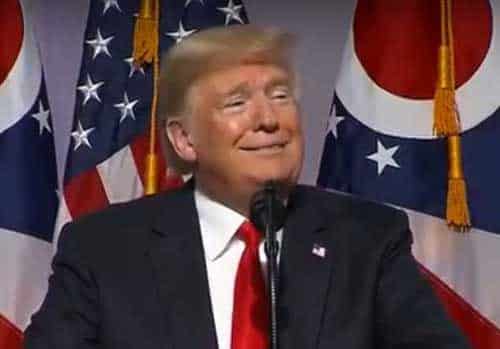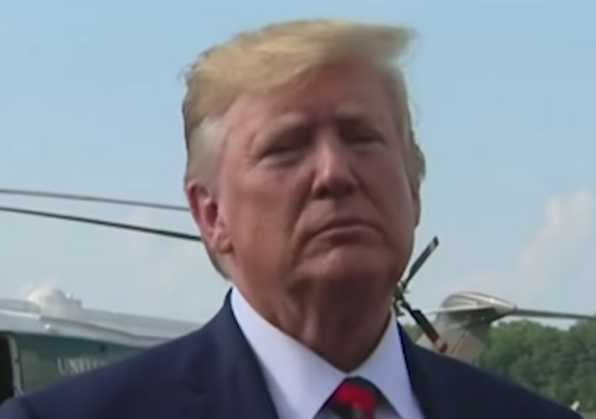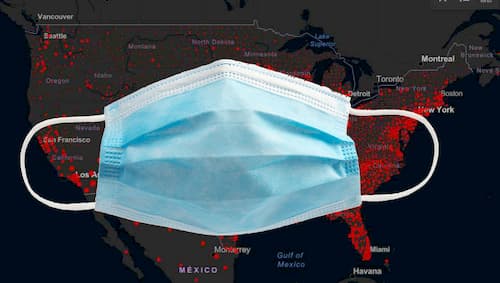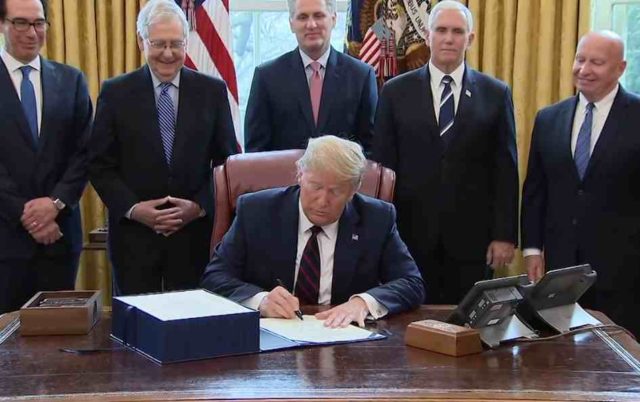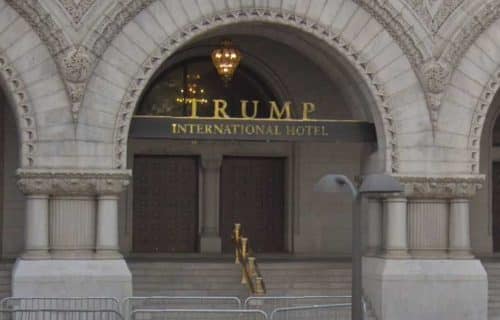“Clearly he’s planning to corrupt the $2 trillion in spending Congress just approved, whether it’s by steering the money to political favorites, negotiating more favorable terms with certain parties or punishing his enemies with a failure to provide aid.”
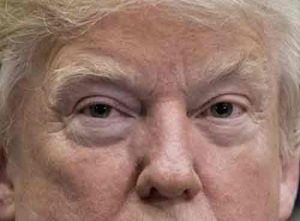 With the rollout of a multi-trillion-dollar coronavirus relief package underway and off to a disastrous start, watchdog groups are raising alarm about the near-total lack of meaningful oversight in place to constrain President Donald Trump and prevent members of his administration from exploiting the massive pot of taxpayer money for personal enrichment or political gain.
With the rollout of a multi-trillion-dollar coronavirus relief package underway and off to a disastrous start, watchdog groups are raising alarm about the near-total lack of meaningful oversight in place to constrain President Donald Trump and prevent members of his administration from exploiting the massive pot of taxpayer money for personal enrichment or political gain.
Politico reported late Wednesday that “as the Trump administration begins pumping billions of taxpayer dollars into the economy, none of the built-in oversight mechanisms are even close to functional,” despite assurances from Democratic leaders that they secured protections against abuse of the relief package, which Trump signed into law late last month.
“Who could have seen this coming? Literally everyone.”
—Bartlett Naylor, Public Citizen
Those safeguards, according to Politico, “are not keeping pace with the rollout of the enormous law—even as members of both parties clamor to layer hundreds of billions of dollars more in emergency aid onto the original package.” In a signing statement accompanying the CARES Act, Trump expressed open contempt for the oversight provisions and claimed the authority to flout them at will.
“No one independent is watching” over the Trump administration’s handling of the money, Politico reporter Kyle Cheney noted on Twitter.
Progressives have repeatedly warned that Congress failed to include sufficient accountability measures in the nearly 900-page law, which is packed with gifts for corporate America—including the Trump Organization.
Those warnings intensified this week after Trump on Monday abruptly fired Glenn Fine, the acting Pentagon inspector general who was appointed by his colleagues to head a newly created committee tasked with overseeing the federal government’s implementation of the CARES Act. Fine’s firing came just days after Trump announced his intention to nominate White House lawyer Brian Miller to oversee the Treasury Department’s handling of $500 billion in bailout money for large corporations.
“Trump may not have anticipated the coronavirus, but clearly he’s planning to corrupt the $2 trillion in spending Congress just approved, whether it’s by steering the money to political favorites, negotiating more favorable terms with certain parties, or punishing his enemies with a failure to provide aid,” said Bartlett Naylor, financial policy advocate with Public Citizen.
[content id=”79272″]
“Who could have seen this coming? Literally everyone,” Naylor added.
In a letter on Wednesday, Sens. Elizabeth Warren (D-Mass.) and Richard Blumenthal (D-Conn.) said “the decision to fire Acting Inspector Fine was outrageous, and a clear effort by President Trump to prevent oversight and avoid accountability for what, so far, has been a failed and corruption-filled response to the coronavirus pandemic.”
This is exactly what we feared would happen – and it’s going to make FOIA and independent oversight from journalists and watchdogs even more important.https://t.co/aOej3TO1zX pic.twitter.com/9dH9Ydn4TI
— American Oversight (@weareoversight) April 9, 2020
The ongoing rollout of the sprawling coronavirus stimulus package has thus far been marred by chaos and delays, particularly for those most desperate for assistance—namely the unemployed, frontline workers, and small businesses.
The one-time $1,200 direct cash payments authorized under the CARES Act are expected to begin flowing next week, but those without direct deposit information on file with the IRS could be forced to wait five months for their check. Beefed up unemployment benefits are set to launch by the end of the week, but only in a few states. Small businesses, as Common Dreams reported, are confronting major barriers as they attempt to apply for relief loans to stay afloat.
“Trump does have a record of availing himself of federal help meant for small businesses.”
—ProPublica
The Trump administration’s implementation of other major components of the coronavirus relief law is also drawing concerns, Politico reported Wednesday.
“The Department of Health and Human Services is slated to dole out $30 billion this week, with the bulk going to large hospitals that care for major shares of the country’s Medicare patients—although details on this plan haven’t been released yet,” Politico reported. “An additional $70 billion is expected to flow in two additional tranches in the coming weeks. But it’s not clear that the money is going to go where it’s needed most.”
The CARES Act “included $31 billion in emergency education assistance, much of it earmarked for states, K-12 schools, universities, and direct aid for college students,” Politico noted, but “there’s been no funding distributed by the Education Department and there’s been no guidance about how or when that money might arrive.”
[content id=”79272″]
The Education Department is headed by billionaire charter school advocate Betsy DeVos. An analysis by MarketWatch on Wednesday found that dozens of for-profit colleges—including some that have been accused of defrauding students—are set to receive up to $1 billion in taxpayer bailout money.
For-profit colleges already suck down enough taxpayer dollars to load students up with debt for useless degrees. If one penny of federal relief money goes to these companies, it should be aid for students – not to boost profits for executives & investors. https://t.co/gyOLcyMSoS
— Elizabeth Warren (@SenWarren) April 9, 2020
As ProPublica reported Wednesday, “some provisions of the bailout are particularly beneficial to businesses like Trump’s” despite language in the law intended to prevent the president and his family from profiting off the relief package.
“At least four of Trump’s hotels each seem to qualify for a separate, forgivable loan,” according to ProPublica. Neither the White House nor Trump Organization officials responded to the outlet’s questions about whether the president’s company plans to apply for bailout loans.
“Trump does have a record of availing himself of federal help meant for small businesses,” ProPublica noted. “After 9/11, his company applied for a program meant to help small businesses in lower Manhattan recover after the attacks. The Trump Organization, which by then owned luxury real estate around the country, applied for the grant through a limited liability company that owned Trump’s Wall Street highrise. The company received a $150,000 grant.”

